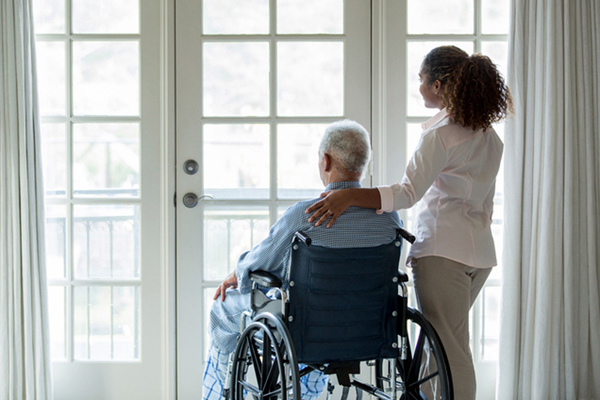- South Texas Students Meet Accordion Music Icons Los Tigres Del Norte In Edinburg Thanks To Khs America/Hohner Alianza Académica Initiative
- Fragile Planet Offers a Nighttime Wildlife Experience
- Falcons Soccer Off & Running
- Cameron County Receives Funds to Improve Two Parks
- Falcons Complete First Half of 32-6A
- School District to Help out Victims of California Wildfires
- Sand Castle Days Continued Despite Unexpected Weather
- Ready for District
- Discussion of Garbage Dumpster Rates, Agreements Between State & City on Highway Regulations, and More
- 31st Annual Shrimp Cook-Off is Right Around the Corner
Bill Aims to Improve “Shamefully Poor” Conditions in TX Nursing Homes
- Updated: May 26, 2017

Texas lawmakers are considering tougher penalties for nursing homes that violate state health and safety regulations. Photo: TerryVine/GettyImages
by Mark Richardson
AUSTIN, Texas – The Texas Legislature could soon approve a bill to correct dangerous conditions in many of the state’s 1,200 nursing homes.
Senate Bill 932, designed to close loopholes in regulations and strengthen penalties for bad actors, is awaiting a House vote after being approved by the state Senate.
Its sponsor, Sen. Charles Schwertner, a physician from Georgetown, says studies show that 1 out of 4 Texas long-term care facilities is substandard.
“It’s very unfortunate that Texas is ranked the worst of the 50 states regarding the quality of nursing home care,” he states. “I believe it’s time to change that. I take very seriously our obligation to send a very clear and unambiguous message that we’re serious about protecting our most vulnerable citizens.”
A report by AARP Texas, entitled “Intolerable Care,” calls conditions in many nursing homes “shamefully poor,” and identifies thousands of serious health and safety violations.
Schwertner says the bill would require that the state’s Department of Aging and Disability Services inspect each nursing facility at least once every two years.
But Schwertner says the biggest improvement the bill would make is to change the “right to correct” rule, which, in theory, allows nursing homes time to fix a violation. In reality, he says it allows substandard conditions, and even abuse and neglect, to continue.
“The bill refines the progressive sanctions on the various types of violations,” he explains. “If nursing homes continue to violate various provisions of law, they can be fined in an increasing manner.”
Schwertner adds the bill is designed to give families confidence that their loved ones will be safe and well cared for in a nursing home.
“People realize they have loved ones – aunts and uncles, parents and grandparents – but they themselves could one day be residing in a nursing facility, and they want to make sure that the quality of nursing homes is improved,” he states. “I think that’s a universal, bipartisan issue.”
The measure is supported by the Texas Health Care Association, which represents the state’s nursing home operators.
